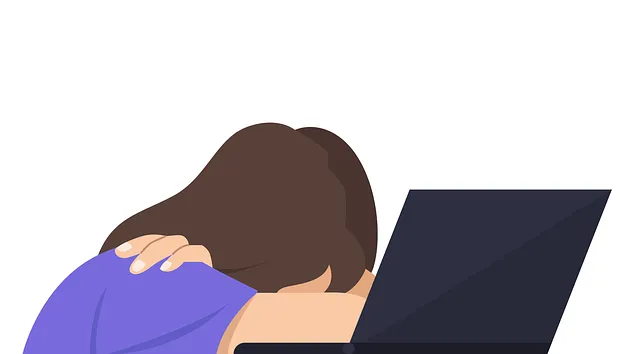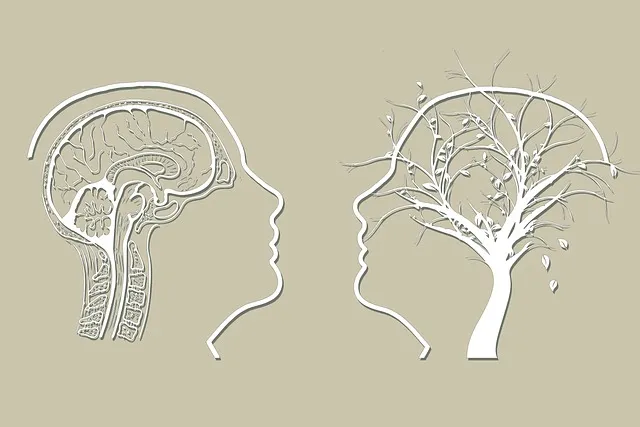The Lone Tree Kaiser Permanente behavioral health center emphasizes early depression recognition and proactive mental well-being through holistic strategies. They address risk factors, offering evidence-based therapies like CBT and IPT, mindfulness meditation, social connections, sleep hygiene, balanced diets, and stress management techniques. The center's comprehensive approach includes support groups, counseling, and social skills training, empowering individuals to manage depression effectively, preserve quality of life, and build healthy relationships.
Depression is a prevalent and serious mental health condition that affects millions worldwide. At the Lone Tree Kaiser Permanente behavioral health center, we understand the importance of proactive prevention strategies to combat this growing issue. This article explores effective methods to recognize and prevent depression, focusing on various aspects from lifestyle changes to professional support. By delving into these strategies, individuals can take charge of their mental wellbeing and seek guidance from the expert resources available at our behavioral health center.
- Understanding Depression: Recognizing the Signs and Risk Factors (Focus on awareness, common symptoms, long-term effects, and potential triggers related to the Lone Tree Kaiser Permanente behavioral health center environment)
- Lifestyle Interventions for Proactive Mental Wellbeing (Cover topics like exercise, mindfulness practices, social connections, sleep hygiene, nutrition, and stress management techniques that individuals can implement at home)
- Professional Support and Therapy Options: A Journey Towards Recovery (Explore various therapeutic approaches, counseling services, support groups, medication management, and the role of mental health professionals at the Kaiser Permanente behavioral health center)
Understanding Depression: Recognizing the Signs and Risk Factors (Focus on awareness, common symptoms, long-term effects, and potential triggers related to the Lone Tree Kaiser Permanente behavioral health center environment)

Depression is a complex mental health condition that affects millions worldwide, and early recognition is key to effective prevention. At Lone Tree Kaiser Permanente behavioral health center, understanding the nuances of depression involves recognizing its subtle signs and addressing underlying risk factors. Common symptoms include persistent feelings of sadness, loss of interest in activities once enjoyed, changes in appetite or sleep patterns, fatigue, difficulty concentrating, and, in severe cases, suicidal thoughts or self-harming behaviors.
The Lone Tree Kaiser Permanente behavioral health center environment offers various prevention strategies, including Mindfulness Meditation practices to foster present-moment awareness and reduce stress. Cultivating positive thinking and empathy through Compassion Cultivation Practices has also shown promise in boosting resilience and well-being. Long-term effects of depression can be devastating, impacting overall quality of life and relationships. By being aware of these signs and potential triggers, individuals can seek support sooner, ensuring more effective management and a brighter outlook.
Lifestyle Interventions for Proactive Mental Wellbeing (Cover topics like exercise, mindfulness practices, social connections, sleep hygiene, nutrition, and stress management techniques that individuals can implement at home)

At the Lone Tree Kaiser Permanente behavioral health center, we emphasize proactive mental wellbeing through lifestyle interventions. Regular exercise, for instance, has been proven to boost mood and reduce symptoms of depression by releasing endorphins, which are natural chemicals in the brain that act as painkillers and create feelings of happiness. Mindfulness practices like meditation or deep breathing can help individuals cultivate emotional intelligence and inner strength development, allowing them to better navigate stress and adversity.
Additionally, maintaining strong social connections, adequate sleep hygiene, and a balanced diet play crucial roles in mental health. Social support from friends, family, or community groups acts as a buffer against stress and loneliness, while proper sleep allows the brain to restore and consolidate memories. Nutritious food fuels the body and supports optimal brain function. Stress management techniques such as yoga, journaling, or engaging in hobbies can also be implemented at home to promote mental resilience. These strategies collectively contribute to a robust mental health policy analysis and advocacy, empowering individuals to take charge of their emotional wellbeing.
Professional Support and Therapy Options: A Journey Towards Recovery (Explore various therapeutic approaches, counseling services, support groups, medication management, and the role of mental health professionals at the Kaiser Permanente behavioral health center)

Depression prevention often involves a multifaceted approach, and professional support plays a pivotal role in recovery. The Lone Tree Kaiser Permanente behavioral health center offers a comprehensive range of therapeutic options tailored to individual needs. From cognitive-behavioral therapy (CBT) to interpersonal psychotherapy (IPT), these evidence-based approaches help individuals identify and change negative thought patterns and improve coping skills development. Additionally, support groups provide a safe space for sharing experiences and building social connections, fostering a sense of belonging and understanding.
Counseling services at the center encompass not just short-term interventions but also long-term strategies for self-care routine development for better mental health. Mental health professionals guide patients in navigating complex emotions and challenges, facilitating personal growth and resilience. Social skills training is another key component, equipping individuals with the tools to build and maintain healthy relationships, a crucial aspect of overall well-being. These comprehensive services at Lone Tree Kaiser Permanente behavioral health center underscore their commitment to empowering individuals on their journey towards recovery and improved mental health.
Preventing depression is a multifaceted endeavor, but with the right tools and support, it’s achievable. By understanding the signs and risk factors, adopting proactive lifestyle interventions like exercise, mindfulness, and stress management, and seeking professional help when needed, individuals can navigate their mental health journey effectively. The Lone Tree Kaiser Permanente behavioral health center offers a comprehensive range of services tailored to meet individual needs, ensuring that recovery is within reach for those who seek it.






